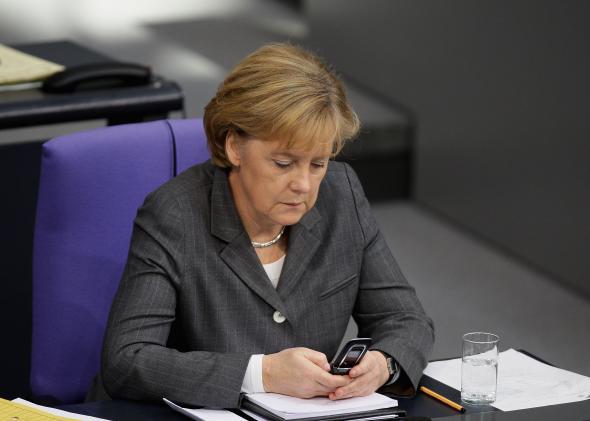Former State Department Spokesman P.J. Crowley, who knows a thing or two about the political impact of WikiLeaks, tweeted the following last night:
I think that’s right. The diplomatic cables leaked by Chelsea Manning have had a major political impact in several countries around the world. They may have helped tip an election in Peru, exposed official corruption in India, and while WikiLeaks’ role in fomenting the Arab Spring uprisings has been somewhat exaggerated—including by the organization itself—cables detailing the corruption and lavish lifestyles of the Ben Ali family in Tunisia certainly played a role in the early days of that country’s protests.
But as you might expect from documents written by U.S. diplomats themselves, the cables didn’t actually portray U.S. foreign policy in the worst light. While often catty and more blunt than U.S. officials would ever been in public, the cables didn’t tell us all that much about U.S. foreign policy that we didn’t already know. With the benefit of hindsight, even some State Department officials have conceded that the release of the cables was “embarrassing but not damaging.”
I doubt we’ll be saying the same thing about the NSA leaks in a few months. The latest reports that the U.S. may have tapped the mobile phone of German Chancellor Angela Merkel have prompted an unusually blunt response from the German government.
As Reuters reported yesterday, the Merkel accusation, along with another recent report of U.S. mass surveillance on French telephone communications, is likely to dominate an upcoming summit of EU leaders in Brussels. (The Merkel surveillance itself may not have been contained in the Snowden files but it seems likely that the investigation by German intelligence and Der Spiegel that uncovered it was prompted by the recent reports of similar U.S. operations.)
The European Parliament has already approved new regulations to curb the transfer of user data to U.S. corporations. If these rules enter into law, it could have a serious impact on both the operations of companies like Google and Facebook and how the U.S. collects intelligence data.
The leaks have already had an impact on U.S. relations in Latin America with President Dilma Rousseff of Brazil canceling a state visit to Washington, and her government accelerating efforts to gain more control over internet traffic and architecture. Recent reports about U.S. spying on the president of Mexico may also have an impact on the relative free rein American spies have had to operate in that country’s drug war.
Defenders of these programs, and the U.S. government itself, make the argument that “all nations” conduct political and economic espionage against their allies. Just as WikiLeaks showed diplomats talking as we’d probably expect diplomats to talk in private, the Snowden leaks just showed spies doing normal spy stuff, right? France probably spies on the U.S. Israel definitely does.
But as David Rothkopf points out, this argument isn’t quite honest:
“In the first instance, not everyone spies and that, in the second, those who do spy do so to differing degrees via differing approaches and within differing guidelines. Furthermore, the types of spying that are currently gaining much of the criticism have either been controversial within the intelligence community in the past (economic spying and spying on friends) or are so new that they are not well understood in terms of operational security risks or other implications (warehousing data hoovered out of the Internet).”
And as the Washington Post argues, we’re fast reaching a point where the diplomatic fallout of the revelation of these programs exceeds any benefit we may have gained from them.
Even if allied governments assumed this type of spying was going on, the scale of these programs, the targets involved, and the newness of the type of spying mean the governments involved have to come up with some sort of political response. Those who brush this off as no big deal should also think about how we would react if the situation were reversed. Yes, we know that there are foreign spies, including those from friendly governments, operating within the United States. But if credible reports emerged that the Mexican government was tapping Barack Obama’s BlackBerry or that France was monitoring thousands of American phone calls, do we really think American news outlets and politicians would just brush it off as the price of doing business? (Also, someone should ask Jonathan Pollard if a little espionage between friends is no big deal.)
At this point, it also seems highly doubtful that Brazil, Mexico, and Germany would be the only governments the U.S. is conducting this type of surveillance on. We’re likely to see more shoes dropping and a lot more diplomatic impact.
Update: Here come those other shoes. The Guardian reports, based on Snowden-provided documents, that the NSA “monitored the phone conversations of 35 world leaders after being given the numbers by an official in another US government department.”
